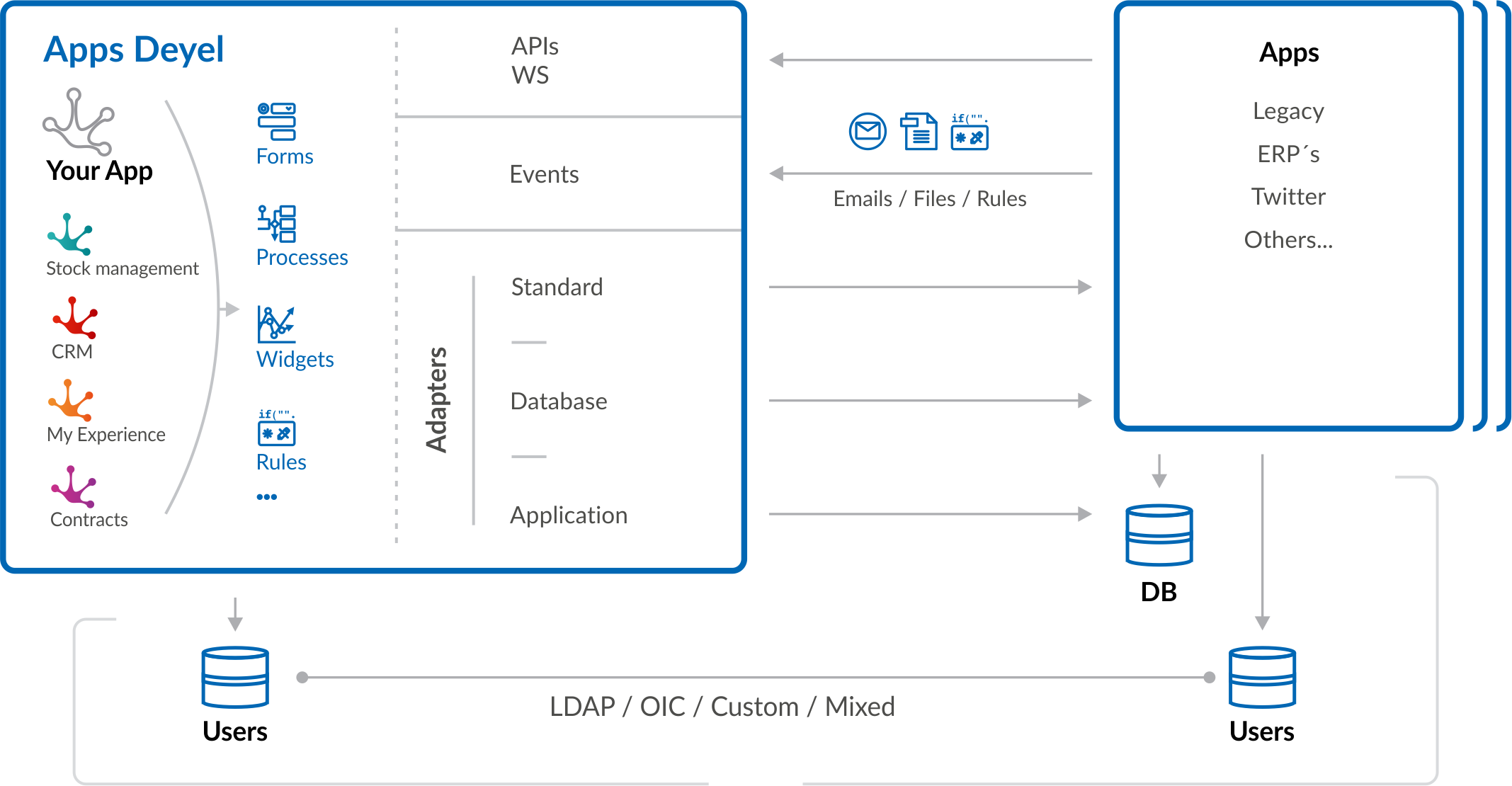Integration
Applications developed with Deyel can interact with other applications, by using different tools and services of the platform.
On the one hand, Deyel allows to integrate its applications with external applications and existing data sources, that is, Legacy systems, databases, Twitter or other external applications, making use of adapters based on web services, Java and JDBC.
It also has a web services API based on the Richardson maturity model design guides, level 3, which allows any external application to Deyel to interact with applications developed with Deyel, or with solutions, such as CRM, Contracts or Stock Management, among others. It also allows the use of emails, rules, files and other events.

Applications developed with Deyel have their own user directory and if necessary they can be integrated through LDAP, OIC, in a personalized and mixed way, that is, allowing groups of users with different authentications.
Integration Facilities
Applications can be integrated using different platform tools and services.
Integration with External Applications
Applications developed with Deyel can be integrated with other applications by different means, either consulting or updating their information.
•Rules based on standard adapters
This integration is done using advanced rules that use the SDK facilities of Deyel and adapters that allow access to web services from external providers.
•Rules based on database adapters that use the Java JDBC protocol
This integration is done using adapters provided by Deyel for the most popular database engines on the market.
•Rules based on application adapters
This integration is done using adapters that allow defining access to applications on the market that expose services.
Integration from External Applications
Other applications can be integrated with applications developed with Deyel, mainly using Deyel Rest API. There are also other means that can be very useful, depending on the characteristics of the applications to be integrated.
•Use of web services API
Through the use of Deyel Rest API other applications can interact with applications developed with Deyel, having access to forms and cases through web services.
•Other media
Integration can be done by using emails, rules and files.
Authentication Schemas
The authentication procedure ensures that any use of Deyel and the use of its solutions are performed by "someone" or "something" that can be identified as a user, within the user registry.
Deyel uses different authentication schemas to respond to this request.
Deyel verifies that the user exists in its registry and checks the password, which is stored encrypted in its database.
•LDAP
When an organization uses directory services to register its users, Deyel may be configured to delegate the authentication process to LDAP.
When an organization uses Google accounts for its users, the authentication process can be delegated to Google.
Deyel implements this type of authentication by integrating with an external Identity Manager and delegating user authentication to it.
It allows an organization to use different types of authentication simultaneously.
Using the Integration
Integration rules can be used from the different objects of the applications developed with Deyel.
•Rules in forms and processes
Advanced adapter-based rules can be used using embedded rules.
•Automatic actions of process activities
Advanced adapter-based rules can be used in the modeling of automatic actions of process activities.
•Scheduled tasks and events
Advanced adapter-based rules can also be used in the modeling of events and scheduled tasks.
